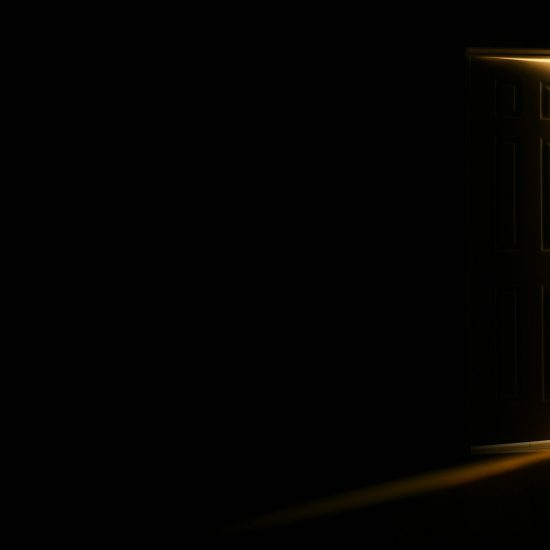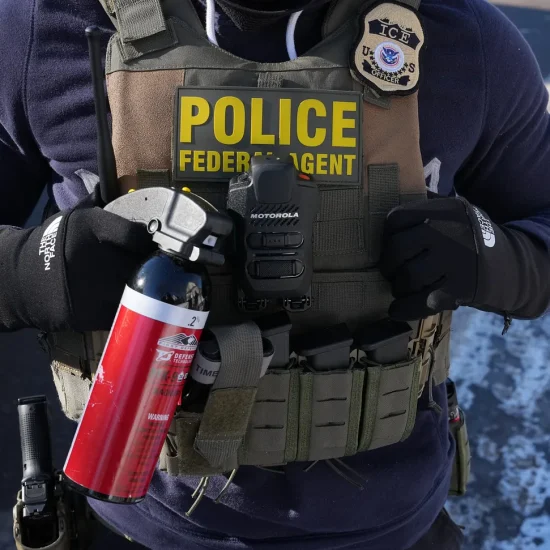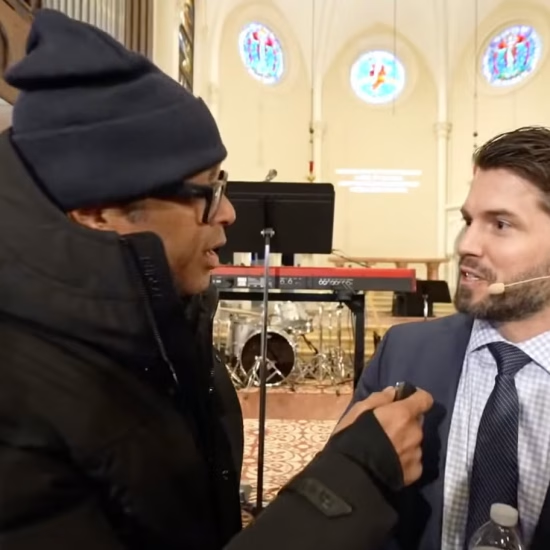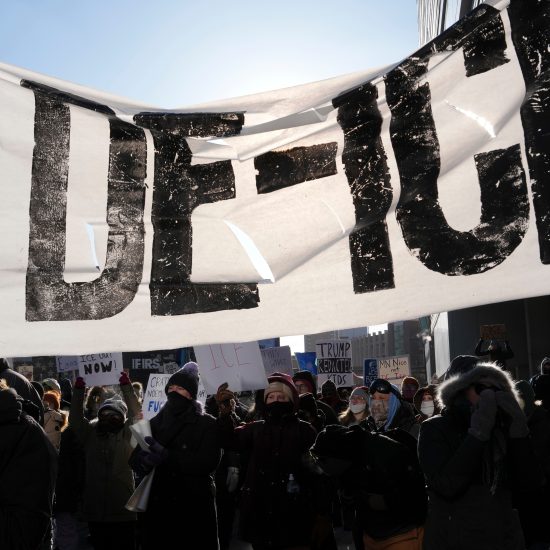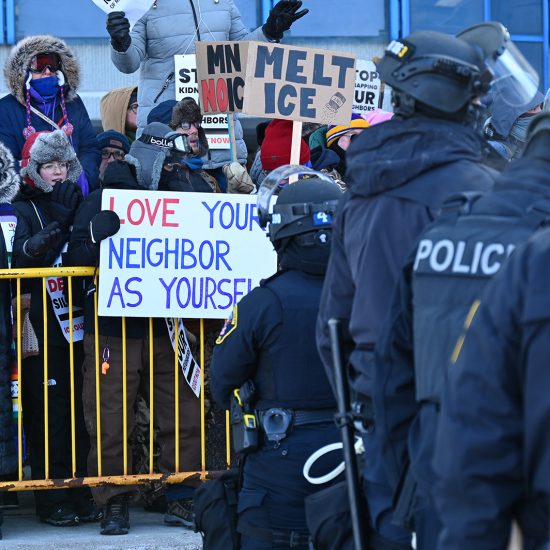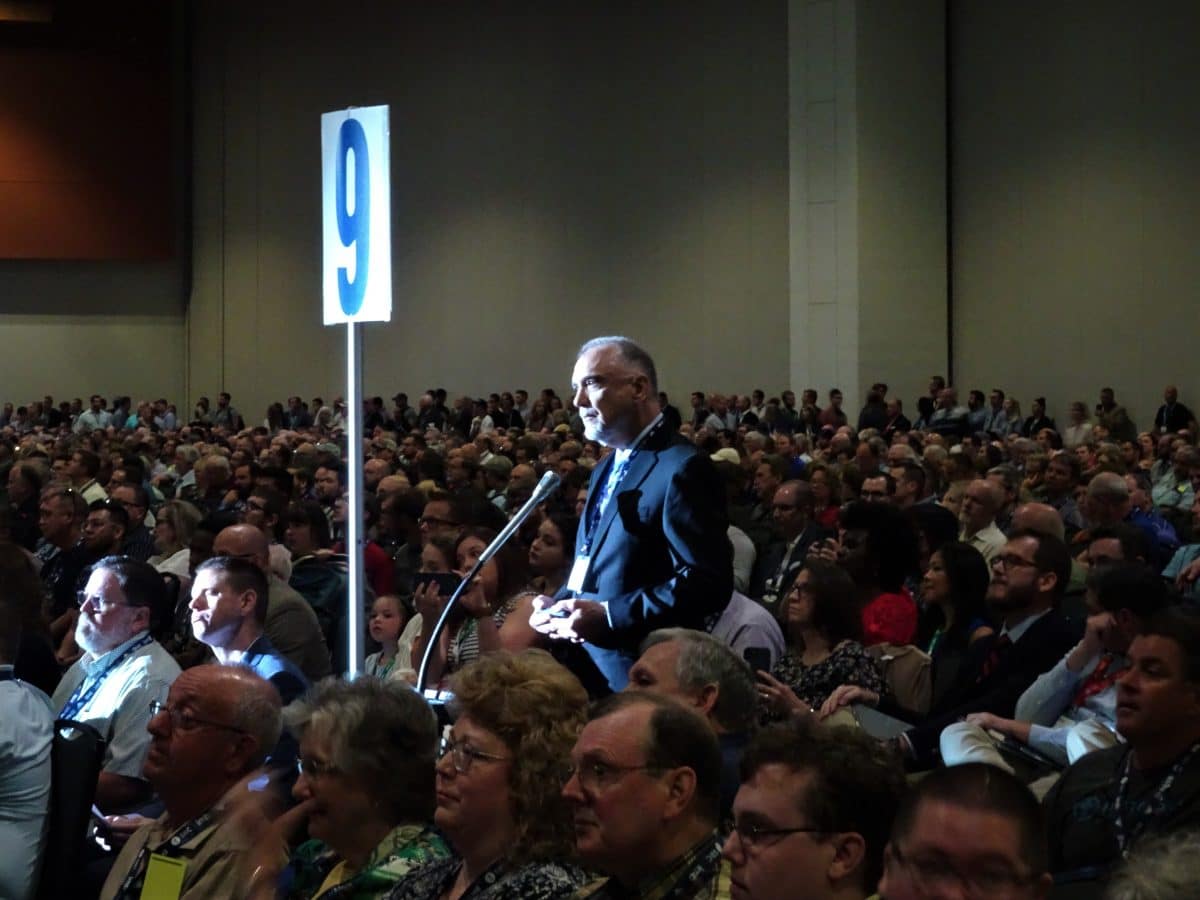
NASHVILLE, Tenn. (RNS) — One of the hot-button items expected to be on the agenda when Southern Baptists met for their annual meeting this week was critical race theory. About a quarter of the 40 resolutions submitted to express the views of the more than 15,000 gathered in Nashville were related to CRT, race or racial reconciliation.
But, in the end, the resolution the committee chose to bring to the floor for a vote did not mention CRT, an academic approach to understanding systemic racism. Resolution 2, “On the Sufficiency of Scripture for Race and Racial Reconciliation,” was overwhelmingly approved by the messengers, or delegates, on Tuesday (June 15).
Though a few messengers pushed back on it.
Kevin Apperson, a North Las Vegas, Nevada, pastor, stepped to a microphone to declare his displeasure that the statement the resolutions committee presented for a vote did not include the words “critical race theory.”
“I, like many people, have flown a great distance to address an ideology, which tells me that I am inherently guilty because of the melanin content of my skin,” he said. “If we do not have the courage to call a skunk a skunk, let’s not say anything.”
After Apperson’s remarks were greeted by a loud “amen” and applause, James Merritt, chair of the resolutions committee, stood his ground.
“I want to say this bluntly and plainly: If some people were as passionate about the gospel as they were critical race theory, we’d win this world to Christ tomorrow,” he said, also drawing cheers and applause.
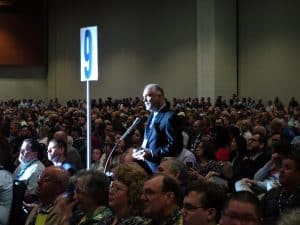
Tom Ascol speaks against critical race theory and the 2019 Resolution 9 during the Southern Baptist Convention meeting in Nashville, Tennessee, on June 16, 2021. (Brian Kaylor/Word&Way)
The passions expressed before, during and after the adoption of that resolution provided a window into a process that usually occurs annually — except during an interruption like the COVID-19 pandemic or a world war — and involves Southern Baptists commenting about some of the cultural controversies of their time. Once resolutions are proposed, the committee, whose membership changes each year, determines which statements to accept, reject or refine and present for adoption at the meeting.
At a news conference Wednesday, resolutions committee vice chair Nathan Finn said the 2021 committee members did not want their work to be viewed as continuing or competing with the resolution on CRT that passed in 2019, when Southern Baptists last met for their annual meeting.
While the 2021 resolution said the messengers, or delegates, “reject any theory or worldview that denies that racism, oppression, or discrimination is rooted, ultimately, in anything other than sin,” the earlier statement said CRT could be used as an analytical tool “subordinate to Scripture.”
So strongly did some Southern Baptists disagree with “Resolution 9” of 2019, there were calls to rescind it. But, in an unusual history lesson on resolutions, a lawyer instructed Southern Baptists that was not possible — after not only the 2019 resolution but earlier ones were suggested for a resolution refuse pile.
James “Jaime” Jordan, general counsel for the SBC, told messengers they did not have the power to undo resolutions made by prior annual meetings. So all attempts to revoke the controversial Resolution 9 on CRT from 2019, or any other previous resolution, are out of order, according to SBC rules, he said.
“While the messengers are completely free to express their own opinion on the matter, what they cannot do is to nullify the fact that a previous group of messengers expressed their opinion,” he said, in summing up a lengthy explanation of SBC rules.
While some 2021 messengers expressed opinions about the 2019 CRT resolution, anti-abortion advocates were concerned past resolutions about the SBC’s stance against abortion were not strong enough.
Clay Hall, pastor of a Paducah, Kentucky, church, stood outside the Music City Center on Wednesday holding a sign urging support for a proposed resolution that would “call for the immediate abolition of abortion without exception or compromise.” Though the nonbinding resolutions solely reflect the beliefs of the Southern Baptists gathered at a particular annual meeting, Hall sees them as a powerful mechanism.
“Resolutions, as we have seen, are good for, No. 1, speaking to Southern Baptists, encouraging them to be passionate about various issues,” he said. “No. 2, they’re good to speak to the culture and to take a stand where God’s word stands on various issues.”
Inside the convention hall the previous day, another co-author of the proposal, Bill Ascol, stood next to a baby held by another attendee as he urged messengers to override the resolutions committee’s decision to decline to bring the proposal to a vote.
In an unusual but not unprecedented move, he was successful to a point: His fellow messengers voted to consider the resolution. But his goal of passage of a statement on abortion ended up being a qualified one, when the word “alone” was added so it read “we will not embrace an incremental approach alone to ending abortion.”
Some of the other resolutions Southern Baptists adopted this week:
- Urged the president and Congress to uphold the Hyde Amendment, which has prevented the use of federal tax dollars to pay for abortions in most circumstances.
- Opposed the Equality Act, which would amend the Civil Rights Act of 1964 to offer anti-discrimination protection for LGBTQ Americans.
- Asked the federal government to make admission of Uyghurs to the U.S. as refugees a priority, given reports that more than a million members of the ethnic Muslim minority group have been held in concentration camps in China.
- Expressed their belief that “any person who has committed sexual abuse is permanently disqualified from holding the office of pastor.”
- Grieved the more than 3.78 million confirmed deaths worldwide from COVID-19.
Not brought to a vote was a resolution that would have condemned the violence of the Jan. 6 insurrection at the U.S. Capitol.
In reference to the dozens more resolutions that were considered but not presented by the resolutions committee, C. Barry McCarty, the SBC’s chief parliamentarian, noted Southern Baptists are welcome to take some simple advice.
“Try again next year,” he said.

